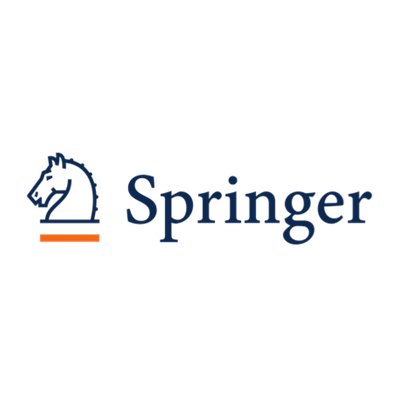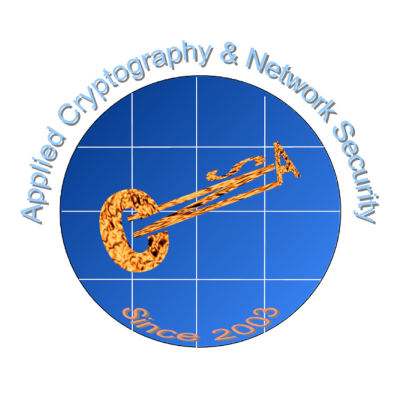ACNS 2021
19th International Conference on Applied Cryptography and Network Security
Kamakura, Japan
| 21-24 June 2021
Conference Topics
Areas of interest for ACNS 2021 include but are not limited to:
- Access control
- Applied cryptography
- Automated security analysis
- Biometric security/privacy
- Blockchain and cryptocurrencies
- Cloud security/privacy
- Complex systems security
- Critical infrastructure security
- Cryptographic primitives
- Cryptographic protocols
- Data protection
- Database/system security
- Digital rights management
- Email, app and web security
- Future Internet security
- Human factors in security
- Identity management
- IP protection
- Internet fraud, cybercrime
- Internet-of-Things (IoT) security
- Intrusion detection
- Key management
- Malware
- Mobile/wireless/5G security
- Network security protocols
- Privacy/anonymity, PETs
- Security/privacy metrics
- Side channel attacks (e.g., microarchitectural, physical-layer)
- Trust management
- Ubiquitous security/privacy
- Usable security/privacy
Besides the main conference, ACNS also seeks workshop proposals. Each satellite workshop will provide a forum to address a specific topic at the forefront of cybersecurity research. Papers accepted at the workshops will have post-proceedings published by Springer in the LNCS series as well.
Here, you can find the ACNS 2021 CFP Poster and ACNS 2021 CFP.
Author Instructions
Submitted papers must not substantially overlap with papers that have been published (other than preprint) or accepted for publication, or that are simultaneously in submission to a journal, conference, or workshop with published proceedings. Information about submissions may be shared with program chairs of other conferences for that purpose. Submissions must be anonymous, with no author names, affiliations, acknowledgement or obvious references. Each submission must begin with a title, short abstract, and a list of keywords. The introduction should summarise the contributions of the paper at a level appropriate for a non-specialist reader. All submissions must follow the original LNCS format (see http://www.springeronline.com/lncs) with a page limit of 20 pages (incl. references) for the main part (reviewers are not required to read beyond this limit) and 30 pages in total. Papers should be submitted electronically in PDF format. Papers rejected at the first round can be submitted at the second round (together with a response letter). Submissions not meeting the submission guidelines risk rejection without consideration of their merits. It is strongly encouraged that submissions be processed in LaTeX. Authors of accepted papers must guarantee that their paper will be presented at the conference and must make a full version of their paper available online. To encourage promising students to publish their best results in ACNS, any paper co-authored by at least one full-time student who will present the paper at the conference is eligible for the best student paper award, with a cash reward of Euro 1000 sponsored by Springer.
Submissions may focus on the modelling, design, analysis (including security proofs and attacks), development (e.g. implementations), deployment (e.g. system integration), and maintenance (e.g. performance measurements, usability studies) of algorithms, protocols, standards, implementations, technologies devices, systems standing in relation with applied cryptography, cyber security and privacy, while advancing or bringing new insights to the state of the art. We also welcome Systematization of Knowledge papers (distinguished with “SOK:” in the title).
We will publish our proceedings with Springer as a volume of the Lecture Notes in Computer Science (LNCS) series. Author instructions and LaTeX/Word templates for LNCS publications can be found via the following link.
Conflicts of Interest
We use the following definition on conflicts of Interest, based on Usenix Security’20: The program co-chairs require cooperation from both authors and program committee members to prevent submissions from being evaluated by reviewers who have a conflict of interest. During the submission process, we will ask authors to identify members of the program committee with whom they share a conflict of interest. This includes: (1) anyone who shares an institutional affiliation with an author at the time of submission, (2) anyone who was the advisor or advisee of an author at any time in the past, (3) anyone the author has collaborated or published with in the prior two years, (4) anyone who is serving as the sponsor or administrator of a grant that funds your research, or (5) close personal friendships. For other forms of conflict, authors must contact the chairs and explain the perceived conflict. Program committee members who are in conflict of interest with a paper, including program co-chairs, will be excluded from evaluation and discussion of the paper by default.
Submission
Papers can be submitted for the first deadline at the following link (deadline 4 Sept 2020 7 Sept 2020 AoE):
ACNS 2021 First Submission Link
Papers can be submitted for the second deadline at the following link (deadline 15 Jan 2021 AoE):
ACNS 2021 Second Submission Link



